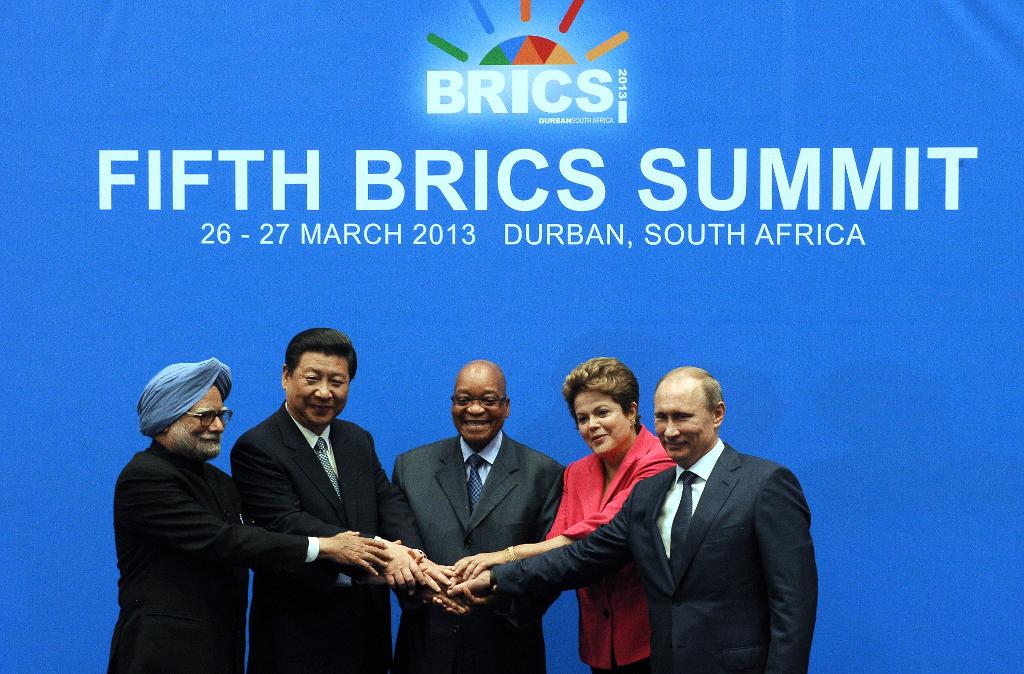Business activity in BRICs shrinks for first time in 4 years
The BRICS’ economies are shrinking for the first time in 4 years.
Manufacturing activity in emerging markets fell to a new post-financial crisis low in July as output contracted across its four largest economies for the first time since March 2009, according to HSBC.
The HSBC Emerging Markets Index (EMI), a monthly indicator derived from purchasing managers surveys (PMI), fell to a low of 49.4 in July, down from 50.6 in June. This marks the first time the reading below the 50 level, which separates growth from contraction, since April 2009.
Added to that, Brazil, Russia, India and China (BRICs) all saw the first broad-based contraction in factory output in over four years.
Frederic Neumann, co-head of Asian economic research at HSBC said that emerging markets are not yet feeling a lift from stabilizing demand in developed economies of the US, Europe and Japan.
"For example, manufacturers have seen new export orders contract for a fourth consecutive month in July," Neumann said in a note on Tuesday, adding that there are signs that domestic headwinds for emerging markets' growth are "stiffening" as well.
"Total new manufacturing orders fell sharply last month, while new orders for services continue to expand at a disappointing pace," Neumann said.
The data paint a very different picture for emerging markets compared to that of developed economies like the U.S., where manufacturing growth hit a two-year high in July, according to the Institute of Supply Management. European factories also snapped a two-year run of declining output last month, a Markit survey showed.
Emerging markets risks
The main risk for emerging markets is that the cyclical downturn in manufacturing and a softer service sector activity will ultimately lead to a weaker job market, Neumann said.
"Manufacturing employment in China, Brazil, Russia, Poland, and Korea, for instance, has already started to decline, with service jobs in most cases still growing, albeit at a softening pace," Neumann said. "Deteriorating job prospects could weigh on household spending, thus undoing the lift expected from easing consumer inflation in most emerging markets."
A slowdown in the world's second largest economy is worrying because of its drag on Asian economies, HSBC economists said.
"Asia manufacturing orders fall sharply, despite a more stable West. Worries [are] now local, especially with China's engine sputtering," Neumann tweeted.
Production at Chinese manufacturers declined for the second month in a row in July, with lower output being driven by the sharpest decline in new business for 11 months, according to HSBC.
However, some comfort can be taken from the HSBC Emerging Markets Future Output Index, that tracks companies' expectations for activity in the next 12-months. The index rose slightly from June's low, but was still at the second-lowest reading in 16 months.
Neumann said the relative optimism among firms could reflect the view that such as in China, there will be some "policy accommodation forthcoming to help arrest the broader deceleration in activity."
More from our partner, CNBC:
Sexist arguments made against Yellen
Every day, reporters and producers at The World are hard at work bringing you human-centered news from across the globe. But we can’t do it without you. We need your support to ensure we can continue this work for another year.
Make a gift today, and you’ll help us unlock a matching gift of $67,000!
